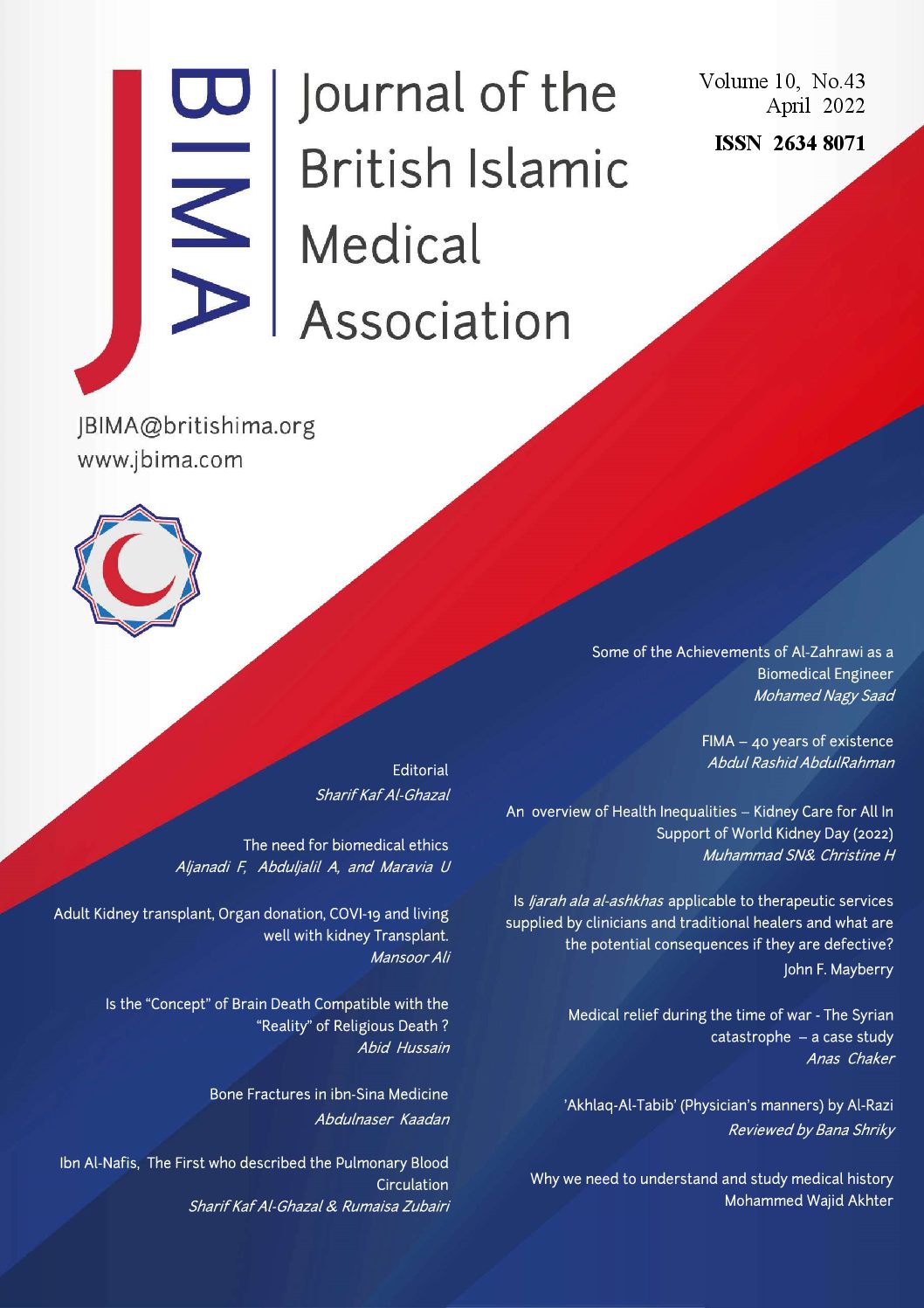
Muslim medical students and staff face significant
challenges in raising concerns within higher education
institutions (HEIs), often encountering dismissive
attitudes, inadequate responses from programme leaders,
or short-lived superficial symbolic wins. Such attitudes
contribute to a culture where Muslim concerns are
trivialised and advocates for change are labelled
disruptive. To address the pervasive issue of
marginalisation within HEIs, the authors introduced the
Manchester Muslim Medical Student Guide (MMMSG),
aimed at fostering tangible and sustainable change [1].
This study explores the implementation and impact of the
MMMSG at a medical school in Northern England
authors engaged stakeholders, including faculty leaders
and legal teams, to develop a comprehensive guide
catering to the unique needs of Muslim students and
staff. Informed by student questionnaires, focus groups
and the authors’ lived experiences, the MMMSG covers
vital topics like accommodation, religious practices,
attire and combating Islamophobia. It offers practical
advice, email templates and university contact details for
assistance and escalation. The guide maintains Islamic
integrity while ensuring comprehensive coverage of essential issues. Faculty engagement during its
development ensured the department’s deeper
understanding of overlooked issues and equipped them
with tools to address concerns effectively. The guide’s
effectiveness stems from its high-quality content and the
accountability it establishes for faculty members.
The release of the MMMSG sparked nationwide interest,
with the team supporting twelve healthcare-related
faculties across the UK in tailoring the guide to their
specific university and degree programmes, including
dentistry, pharmacy, nursing and midwifery. Its impact
led the Medical Schools Council (MSC) to develop a
staff faith guidance document, providing
recommendations on fostering inclusivity for students of
faith [2]. Positive feedback from the General Medical
Council (GMC) prompted plans for a document review
and dissemination of a second edition.
The host university awarded the MMMSG a Highly
Commended Award [3] and submitted the work for the
Times Higher Award, highlighting its significant impact
on student welfare and institutional inclusivity.
The MMMSG’s success lies in its transformative impact
on institutional culture and student experience. Through
the data-driven approach and active involvement of
students and faculty in its development, the guide became
a catalyst for meaningful change, ensuring Muslim
concerns were validated and compelling faculty leaders
to address previously overlooked issues. The MMMSG
has initiated a new era of collaboration between students
and institutions, fostering positive transformations in
healthcare education across the UK.
References
[1] Kafagi AH, Al-Qaisia AL, Momo M, Bahadur S,
Ullah M, Haque E. The Manchester Muslim Medical
Student Guide Second Edition. September 2023 cited
June 13 2024]. Available from: https://www.researchgate.net/publication/3741667
35_The_Manchester_Muslim_Medical_Student_Guide_
_Second_Edition
2.Medical Schools Council [Internet]. Active Inclusion,
Challenging Exclusions: Supporting students of different
faiths; May 23 [cited June 13 2024]. Available
from: https://www.medschools.ac.uk/media/3049/active
inclusion-challenging-exclusions-supporting-students-of
faith.pdf
3. Haque E. So proud of our students. They are now
supporting other health programmes at UoM& other
medical schools nationally in [Post] [Internet]; 11 May
2022 [cited June 13 2024]. Available
from: http://www.twitter.com/enamhaque31/status/15245
01252670898177

